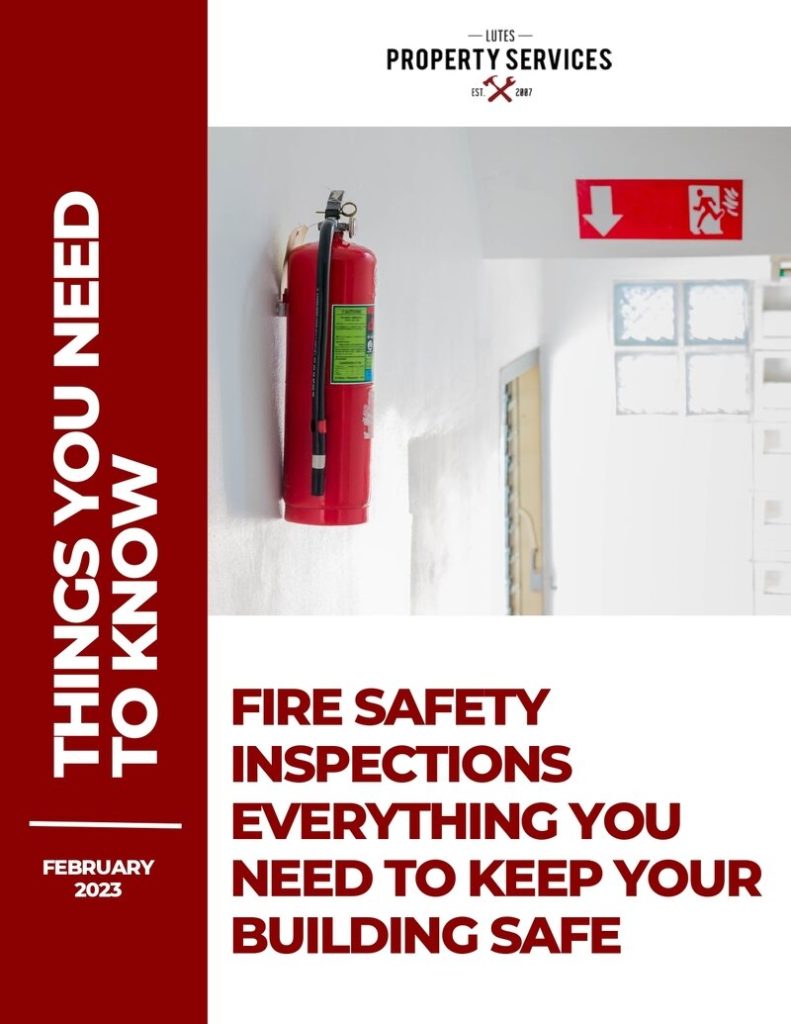Introduction
At Lutes Property Services, we understand the importance of electrical maintenance for commercial buildings. Electrical maintenance is the process of maintaining and preserving the working condition of electrical equipment and systems to ensure they continue to run efficiently. It is important to invest in electrical maintenance to help increase the lifespan of machines and identify potential problems before they become critical.
Definition of Electrical Maintenance
Electrical maintenance involves scheduled inspections that should be conducted by licensed electricians who are trained in safety procedures and have access to building specifications, equipment diagrams, and blueprints. This allows them to properly inspect and test equipment, fix faulty wiring and components, replace worn parts, and much more.
Benefits of Electrical Maintenance
Regularly conducting electrical maintenance can save you money in the long run by preventing costly repairs or replacements due to neglected or outdated systems. Additionally, it offers peace of mind knowing that your building’s electrical system will remain safe and reliable for years to come.
Who Can Do Electrical Maintenance?
Electrical maintenance should be conducted by licensed electricians who are trained in safety procedures and have access to building specifications, equipment diagrams, and blueprints. Licensed electricians are qualified professionals who have completed an electrical apprenticeship program or a college-level electrical program. They must pass a licensing exam before they are allowed to work on electrical systems and equipment.
Licensed Electricians
Licensed electricians have the knowledge and experience to identify potential problems with electrical systems and components, as well as the ability to repair any issues that may arise. They also understand how to install new systems and components correctly, ensuring that everything is up to code. Licensed electricians can also provide advice on energy efficiency measures for commercial or residential buildings, which can save money in the long run.
Their Training and Qualifications
In order to become a licensed electrician, individuals must complete an accredited training program or apprenticeship program that covers topics such as electrical theory, wiring techniques, safety regulations, and more. Upon completion of the program, they must then pass a licensing exam given by their state’s board of professional licensure. Once they have passed the exam, they are officially certified as a licensed electrician and can start working on electrical systems and equipment.

Licensed electricians must also stay up-to-date on new technologies, regulations, and safety standards in order to ensure that their work meets all requirements. This includes attending continuing education courses or seminars offered by professional organizations or local trade schools in order to keep their skills sharp and remain current with industry standards.
Overall, it is important that only qualified individuals perform electrical maintenance on systems and equipment in order to ensure that everything is safe and up-to-code at all times. Licensed electricians have the necessary training and qualifications needed to properly inspect and maintain electrical systems and components effectively while keeping everyone safe from harm’s way.
Licensed electricians are qualified professionals who must complete an accredited training program and pass a licensing exam to become certified and perform electrical maintenance. Key finding: Licensed electricians must stay up-to-date on new technologies, regulations, and safety standards.
How Often Does Electrical System Need To Be Tested?
Regular inspections of electrical systems are necessary to maintain the safety and efficiency of the system. The frequency of these inspections depend on a variety of factors, such as the age of the building, complexity of the system, and frequency of use.
Factors That Determine Regular Inspections
The age of the building is an important factor in determining how often electrical systems need to be tested. Older buildings with outdated wiring may require more frequent testing and maintenance than newer buildings with updated wiring. Additionally, complex systems with multiple components may require more frequent testing than simpler systems with fewer components. Finally, the frequency of use is also a factor in determining how often an electrical system needs to be tested; if it is used frequently, it should be inspected more often than if it is used less frequently.
Timelines Recommended By Specialist
It is recommended that all electrical systems be inspected at least once a year by a qualified electrician. In addition to annual inspections, some experts recommend that certain types of buildings or equipment receive additional testing every three to five years. For example, industrial facilities or large commercial buildings may require more frequent inspections due to their increased complexity and usage levels. Additionally, any newly installed equipment should be tested prior to being put into operation to ensure that it meets all safety requirements and regulations.
Overall, regular testing and maintenance are essential for ensuring that electrical systems remain efficient and safe for use. By investing in electrical maintenance, businesses can avoid costly repairs or replacements down the line due to neglect or improper care. Frequent testing is also beneficial in identifying potential problems before they become critical issues that could lead to injury or property damage.
| Factors | Frequency of Inspections |
| Age of Building | Once a year |
| Complexity of System | Every 3 – 5 years |
| Frequency of Use | More often if used frequently |
| Newly Installed Equipment | Prior to use |
What Is Covered In The Inspection?
When a licensed electrician is conducting an electrical maintenance inspection, they are using a variety of tools and equipment to inspect and test the system, as well as fix any faulty wiring or components and replace any worn parts. These inspections can help to identify potential problems before they become critical, as well as increase the lifespan of machines that are part of the electrical system.
Tools and Equipment Used for Inspection
The tools and equipment used by electricians during an electrical maintenance inspection vary depending on the type of building, complexity of the system, and other factors. For example, a basic inspection may involve visual checks of wiring and components with flashlights or magnifying glasses, while more complex systems may require specialized testing equipment such as multimeters, current testers, or thermographic cameras. Additionally, electricians may use hand tools such as screwdrivers or pliers to open up panels or access areas that need to be inspected.
Fixing Faulty Wiring and Components
When electricians find faulty wiring or components during their inspections, they will take steps to repair them in order to ensure the safety of those who use the system. This often involves replacing damaged wires with new ones that meet safety standards, as well as tightening connections between components in order to prevent shorts or other issues. Electricians also have the ability to troubleshoot more complex issues such as power surges or ground faults by looking at diagrams and blueprints of the system.
Replacing Worn Parts
Replacing worn parts is another important aspect of electrical maintenance inspections. By doing this regularly, electricians can help extend the life of machines that are part of the system by ensuring they are running efficiently without any issues caused by worn-out parts. This includes replacing switches, outlets, circuit breakers, fuses, capacitors, transformers, motors, relays and other components that may be showing signs of wear or damage over time from regular use.
Investing in electrical maintenance can help keep systems running smoothly for years to come by identifying problems early on and addressing them quickly with appropriate repairs and replacements when necessary. By having a professional electrician conduct regular inspections using specialized tools and equipment designed specifically for this purpose helps ensure that all aspects of an electrical system are functioning properly at all times for maximum efficiency and safety.
Conclusion
At Lutes Property Services, we understand the importance of electrical maintenance and its value in helping to increase the lifespan of machines. We are proud to offer comprehensive commercial-building solutions, from maintenance and emergency services to construction, repairs, and renovations. Our team is highly trained and experienced in safety procedures and can handle any project – big or small. Investing in electrical maintenance now can help you avoid costly repairs down the road. Contact us today for more information on how we can help you with all your building needs!


